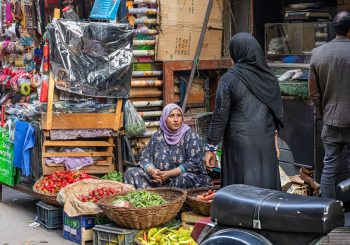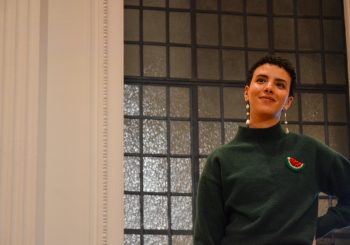Remote work is no longer just a passing trend; it is a lifestyle shift, transforming communities worldwide. What began as a temporary response to the COVID-19 pandemic, when businesses were forced to embrace remote setups to ensure continuity, has now evolved into a fundamental change in how and where people work. As lockdowns lifted and companies experimented with hybrid models, it became clear that remote work was here to stay, leading to a surge in digital nomadism and the redefinition of work-life balance.
Governments and businesses worldwide have adapted to this shift, with countries like Portugal and the United Arab Emirates (UAE) actively courting digital nomads through specialized visas, tax incentives, and coworking infrastructure. At the same time, lesser-known remote work hubs have emerged in response to the growing demand for flexible, affordable, and picturesque work environments. In Egypt, coastal towns like Dahab and Hurghada have transformed into thriving remote work havens, attracting professionals who seek a blend of productivity and relaxation in scenic, low-cost settings.
This global embrace of remote work is reshaping economies, urban development, and even tourism, as cities and towns reinvent themselves to accommodate a new wave of location-independent professionals.
From freelancers and content creators to business owners and traders, remote workers are flocking to these beachside destinations, blending productivity with paradise. Over the past few years, Dahab has transformed from a quiet diving town into a growing remote work hub, with digital nomads drawn by its low costs, warm climate, and proximity to Europe. However, while the influx of remote workers has fueled demand for co-working spaces and modern infrastructure, challenges such as poor internet connectivity and the absence of a digital nomad visa hinder the town’s full potential.
“When we started this, like, I wanted to do it eight years ago, there were really just 10, 15 remote workers in Dahab,” Ahmed Darwish, the owner of El-Coworking space in Dahab, recalls. “Then, during COVID, this number multiplied ten times.”
Earning a salary in foreign currency while living in Egypt provides a significant financial advantage due to the country’s lower cost of living. With expenses such as rent, food, and entertainment being considerably cheaper than in Western countries, remote workers earning in U.S. dollars, euros, or British pounds can enjoy a high standard of living at a fraction of the cost.
“We have a UK salary in Egypt, and nothing will be better for us,” Darwish explains, noting how working remotely from Egypt offers high earning potential while keeping expenses low.
Additionally, Dahab, unlike bustling resort towns like Sharm El-Sheikh, fosters an authentic, tight-knit community, where digital nomads and locals interact freely.
“The people here are very open and accepting, which makes it an easy place to live,” he adds.
Remote workers have also added that working in Dahab is a great place to clear your mind on the beach with no other distractions while also building connections.
”I seek tranquility, natural scenery, and the opportunity to build connections with people from all over the world. The city’s design harmonizes with humans, nature, and animals, which makes it perfect for work,” said Abdalla Ezyan, a remote worker in Dahab.
Co-Working Spaces: From Trend to Necessity
For years, remote workers in Dahab made do with cafés and beachside restaurants, but as demand grew, so did the need for proper workspaces.
“It all seems like a perfect spot to work,” Darwish explains, “but it’s never really a working space. You need your own internet, proper seating, and quiet for calls.”
This gap in infrastructure led him to open a dedicated co-working space, providing high-speed internet, ergonomic furniture, soundproof meeting rooms, and even beachside seating.
“I designed the space for myself,” he says. “If it didn’t work out as a business, I would just hire more people and turn it into an office.”
Despite challenges like high rents and expensive maintenance costs, the space has been a success, attracting both short-term visitors and repeat customers.
“We have people who contact us before even booking their ticket to Dahab,” Darwish notes, highlighting the growing appeal of well-equipped co-working spaces.
Who Are These Remote Workers?
Remote work in Egypt’s coastal towns is largely driven by professionals in IT, marketing, sales, business development, and content creation. Darwish points out that Dahab has become a hub for traders, startup founders, and even cryptocurrency investors, who can often be spotted working with multiple monitors and large screens.
The demographic also shifts with the seasons.
“In the summer, we get more Egyptians, mainly professionals rather than students,” he explains. “But in the winter, we have more foreigners…some stay for the full six to eight months.”
With Egypt’s cheaper cost of living, many European remote workers see it as an alternative to Southeast Asia, particularly now that the country’s inflation has made prices even more competitive.
“Dahab is definitely more beautiful than Asia in many ways,” Darwish argues. “We’re so close to Europe, with a nice, chill environment and a huge variety of sports and activities.”
Internet, Infrastructure, and the Need for a Digital Nomad Visa
While Dahab and other coastal towns are attracting remote workers, they still face major obstacles. Darwish highlights Egypt’s poor internet infrastructure as a major barrier.
“The internet here is from the 1990s,” he says. “In the best parts of Dahab, the government provides less than 1 Mbps upload speed, which is just not acceptable for remote work.”
To address this, Darwish and other co-working space owners have lobbied the South Sinai governor to improve internet services, believing that better connectivity would attract even more digital nomads.
Additionally, Egypt lacks a digital nomad visa, a tool used by countries like Portugal, Spain, and the UAE to attract long-term remote workers.
“Every country is fighting to get these people, but Egypt doesn’t even seem aware of the opportunity,” Darwish laments. “A visa allowing remote workers to stay longer and pay a small tax in exchange for residency could be a game-changer.”
A structured approach to welcoming digital nomads could also help balance economic benefits and local concerns.
“High demand for housing is already pushing up rental prices, making it harder for locals to afford living here,” he warns.
The Future of Remote Work in Egypt
“If we had better infrastructure, I believe thousands more digital nomads would come here,” Darwish says. “We’re already a top tourist destination—imagine if we also became a top remote work destination.”
With continued investment in the internet, infrastructure, and supportive visa policies, Egypt has the potential to compete with leading digital nomad hubs worldwide. Until then, places like Dahab will remain hidden gems, beloved by those lucky enough to discover them.







Comments (0)